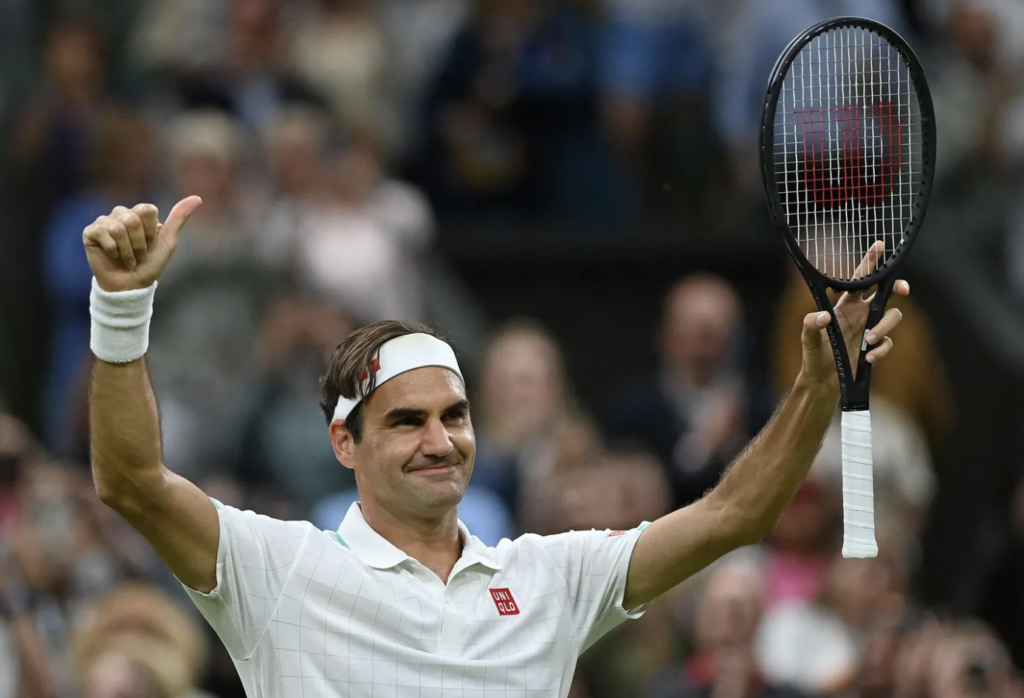
On March 28, 2024, the Office of the President announced the 2024 Commencement Speaker: Roger Federer. This brief letter from Dartmouth President Sian Beilock provided a video and brief background on Federer as an athlete. For those who are not familiar with Federer, he is a former professional tennis player and arguably one of the best tennis players of all time. According to the Association of Tennis Professionals (ATP), Federer was ranked world No. 1 in singles for 310 weeks, including a record 237 consecutive weeks. Originally from Basel, Switzerland, Federer has competed in 5 Olympic games, receiving a gold in the 2008 Beijing games (doubles) and a silver medal in the 2012 London games (singles). Additionally, Federer holds eight men’s singles Wimbledon titles and five men’s singles US Open titles.
It is undoubted that Federer is one of the most talented tennis players, if not the most talented player, of our time; however, the commencement speech, and more importantly, the commencement speaker, serves an essential purpose. The main purpose of a commencement speaker, at least in my opinion, is to leave the graduating seniors with a message of inspiration and motivation as they embark on the next chapter of their lives. Often, speakers connect with these students by sharing their personal experiences and struggles rising to success.
Looking back at Dartmouth’s history of Commencement speakers, Federer is truly not as unprecedented as I, and other students, initially thought. Dartmouth has quite a history of bringing various prominent names to campus.
In 2022, Russell Wilson, former Quarterback for the Seattle Seahawks and Denver Broncos and current quarterback of the Pittsburgh Steelers, delivered his commencement speech. Although Wilson is not a Dartmouth alumnus himself, he is a legacy. Russell Wilson’s father, Harrison Wilson III, is a member of the class of 1977 and the second of his four siblings to attend Dartmouth.
Another notable Dartmouth Commencement speaker was Fred Rogers (commonly known as Mister Rogers). In 2002, less than a year before his death in 2003, he delivered his commencement speech at the campus where he attended his freshman year of college before transferring to Rollins College. Rogers is known for his work as a television host, author, and Presbyterian minister. His most significant contribution was his show “Mister Rogers’ Neighborhood,” which ran from 1968 to 2001.
Of course, the list of Dartmouth commencement speakers could not be finished without Jake Tapper, CNN’s lead Washington anchor. Tapper, a member of the class of 1991 and Alpha Chi Alpha, continues to hold ties to the college. Currently a member of the Board of Trustees, Tapper is infrequently back to campus for events like the Inauguration of Dartmouth President Sian Beilock and the events held by the Rockefeller Center such as “An Election on Trial with Jake Tapper ‘91 and Neal Katyal ‘91” in the most recent winter term.
Lastly, Shonda Rhimes ‘91, is a television producer and screenwriter known best for her work with the production of Grey’s Anatomy, Scandal, Bridgerton, and more delivered the 2014 Commencement speech. Rhimes’ work and contributions to film have led her to be on the Time 100 list of the 100 most influential people in the world in 2007, 2013, and 2021. Beyond her work in television and Netflix, Rhimes has written best-selling books, most notably, her book titled “Year of Yes.”
The selection of Roger Federer as Dartmouth’s 2024 Commencement Speaker is undoubtedly an exciting and fitting choice, considering his athletic achievements and status as a world icon. However, beyond his athletic prowess, the significance of a commencement speaker lies in the message that Federer will deliver in June. Based on Dartmouth’s history of commencement speakers, it becomes clear that the selection of Federer is well-aligned with this Dartmouth tradition. Dartmouth has welcomed speakers who have made significant contributions to their respective fields and have resonated with students through their stories, insights, and messages of motivation. Federer’s presence serves as a reminder of the multifaceted nature of success and the importance of perseverance, dedication, and resilience in achieving one’s goals. Federer’s success is truly a testament and inspiration for the students who will listen to him in early June. Federer’s athletic achievements are impressive, but it is his potential to inspire and motivate that make him such a valuable addition to Dartmouth’s list of commencement speakers.

Be the first to comment on "An Ace for the Big Green, Roger Federer at Commencement Address"